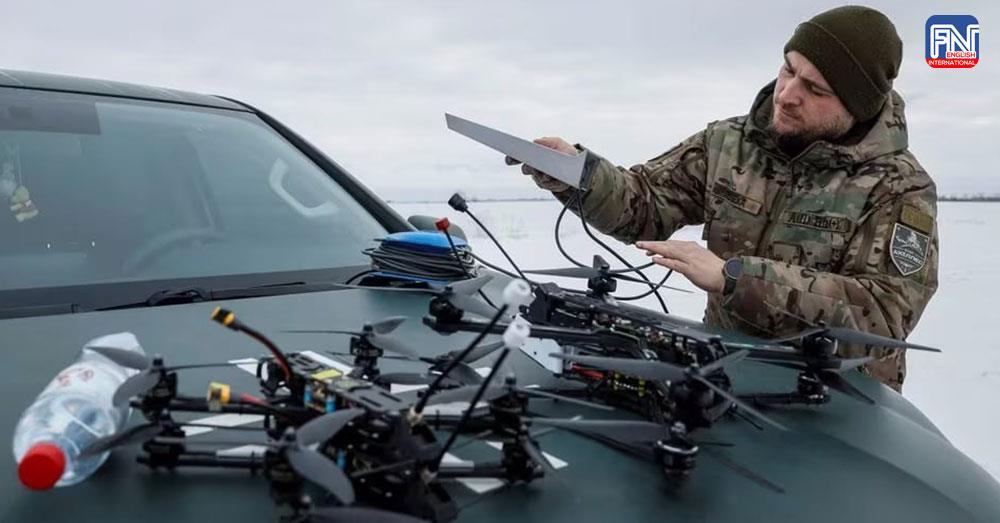KRAMATORSK, Feb 21 (Reuters) - As the Ukraine war enters its third year, the infantry of 59th Brigade are confronting a bleak reality: they're running out of soldiers and ammunition to resist their Russian invaders.
One platoon commander who goes by his call sign "Tygr" estimated that just 60-70% of the several thousand men in the brigade at the start of the conflict were still serving. The rest had been killed, wounded or signed off for reasons such as old age or illness.
Heavy casualties at the hands of Russian forces have been compounded by dreadful conditions on the eastern front, with frozen soil turning into thick mud in unseasonably warm temperatures, playing havoc with soldier's health.
"The weather is rain, snow, rain, snow. People get ill with simple flu or angina as a result. They're out of action for some time, and there is nobody to replace them," said a company commander in the brigade with the call sign "Limuzyn". "The most immediate problem in every unit is lack of people."
On the cusp of the second anniversary of its Feb. 24 invasion, Vladimir Putin's Russia is in the ascendancy in a conflict that combines attritional trench combat reminiscent of World War One with high-tech drone warfare that's sending tens of thousands of machines into the skies above.
Moscow has made small gains in recent months and claimed a major victory at the weekend when it took control of Avdiivka in the hotly contested eastern Donetsk region. A spokesperson for 3rd Separate Assault Brigade, one of the units that tried to hold the town, said the defenders were outnumbered seven to one.
Reuters spoke to more than 20 soldiers and commanders in infantry, drone and artillery units on different sections of the 1,000-km frontlines in eastern and southern Ukraine.
While still motivated to fight Russian occupation, they spoke of the challenges of holding off a larger and better supplied enemy as military support from the West slows despite pleas for more from Ukrainian President Volodymyr Zelenskiy.
Another commander in the 59th Brigade, who only gave his first name Hryhoriy, described relentless attacks from groups of five to seven Russian soldiers who would push forward up to 10 times a day in what he called "meat assaults" - highly costly to the Russians but also a major threat to his troops.
"When one or two defensive positions are fighting off these assaults all day, the guys get tired," Hryhoriy said as he and his exhausted men were afforded a brief rotation away from the frontlines near the Russian-occupied eastern city of Donetsk.
"Weapons break, and if there is no possibility of bringing them more ammunition or changing their weapons, then you understand what this leads to."
The Ukrainian and Russian defence ministries didn't immediately respond to requests for comment on the state of the play on the frontlines and how both sides intend to prosecute the war through to the end of the year.

Photo from Reuters